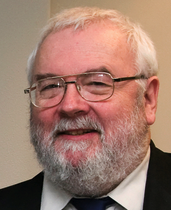Maths Competition Books Many countries have maths enrichment organizations which publish relevant books. In Britain, this outfit is the United Kingdom Mathematics Trust and it has a publications site. I strongly recommend purchasing direct from this charity. There are many interesting texts there. I wrote A Mathematical Olympiad Primer available at that site. MOP is an elementary text aimed at people sitting BMO1 (or any similar first round national maths olympiad paper). You can now also find A Mathematical Olympiad Companion for people planning to sit BMO2 or any other final round national mathematical olympiad. Many people seek to get a geometry education: UKMT publishes excellent and appropriate texts: for example Christopher Bradley and Tony Gardiner's Plane Euclidean Geometry and Gerry Leversha's Crossing the Bridge and The Geometry of the Triangle.
However, it may not be sensible to purchase these materials if you come from a country where hard currency is very expensive. There are sometimes materials made available by maths competition enthusiasts in your own country, so try to find out if there are such people, and get in contact with them. If you do have access to hard currency, and you are sufficiently anglophone, then you may wish to consider the texts available through the publishing arms of the Mathematical Association of America and the Australian Mathematics Trust.
There are also free books on the internet which you can download. I wrote a foreword for the excellent text Infinity by the prolific problem composer Hojoo Lee, and two collaborators Tom Lovering and Cosmin Pohoata. There is also Kiran Kedlaya's beautiful Geometry Unbound.
If you would like to recommend that I make a link to some free internet resources, please make a suggestion in email with "link recommendation" in the subject line.
Other useful resources include
| AoPS, that is over 25000 past olympiad problems! | Brilliant.org | NIMO | Cut the knot | Wolfram Mathworld |
| MacTutor history of mathematics | Yufei Zhao's handouts | IMOmath | Evan Chen's MIT propaganda | |
| Crux Mathematicorum | Mathematical Reflections (AwesomeMath) | Mathematical Excalibur | Chapters of an Olympiad Combinatorics book | |
| Cody Johnson's notes on algorithms | Canadian materials | Po-Shen Loh's talks | Art of Problem Solving (front) | |
| en francais Kortchemski's page | en francais Animath materials | y en espanol Geometry in Spanish | y en espanol Mexican Olympiad Prepárate material |
There are international maths competions with permanent websites:
- IMO official (records, rules, procedures)
- IMO Foundation (the public face of the IMO)
- UK IMO register reports, recent ones contain idiosyncratic Balkan Maths Olympiad, EGMO and IMO diaries.
- The Romanian Master of Mathematics
- The European Girls' Mathematical Olympiad (EGMO).
- The Benelux Mathematical Olympiad.
- The Pan African Mathematical Olympiad.
Here is specific advice about learning Euclidean Geometry.
Contact Information:

Dr Geoff Smith MBE Email: G.C.Smith@bath.ac.uk Department of Mathematical Sciences Tel: Not during COVID University of Bath Fax: +44 (0)1225 386492 Bath BA2 7AY Room: 4W2.16 England UKMT Volunteer Member of the BMO Executive, President of the IMO Board and on twitter at @GeoffBath

